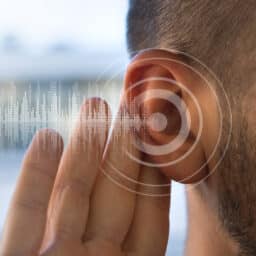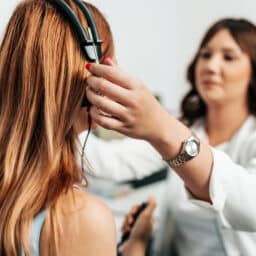How Does Diabetes Affect Your Hearing?

Diabetes, a chronic condition affecting blood sugar processing, can impact various bodily systems, including hearing, when not properly managed. Learn about the connection between the two here. The Connection Between Diabetes and Hearing Loss The inner ear’s blood vessels are particularly sensitive to blood flow. Diabetes-induced poor circulation and high blood sugar levels can inflict…
Is My Hearing Loss Temporary or Permanent?

Nearly everyone has experienced muffled hearing at least once in their life. When this muffled hearing is temporary, it is not always a cause for concern. However, some instances of muffled hearing are permanent—known as permanent hearing loss. Knowing how to differentiate between temporary and permanent hearing loss is essential in ensuring you’re on the…
How Can a Concussion Affect Your Ability to Process Sound?

A concussion is a traumatic brain injury caused by a blow, bump or jolt to the head or by damage to the body that causes sudden movement to the head. Common symptoms of a concussion may include but are not limited to: While many concussions are considered mild, moderate or severe cases may exhibit trouble…
The Truth About Tinnitus

Tinnitus is common, affecting approximately 50 million Americans. But despite its prevalence, there are many myths surrounding the condition. Below we review some of these myths and the truths behind them. Myth: Tinnitus Is a Disease Truth: Tinnitus isn’t a disease, but rather it is a symptom of an underlying problem. Some conditions commonly associated…
How Treating Hearing Loss Improves Your Relationships
Communication in our daily lives from social situations to spiritual or religious congregations to sporting activities to family gatherings, form some the most important foundations of human interaction. Our jobs, loved ones, close friends and our work colleagues and peers form circles that radiate out to create a social and professional network that we construct…
